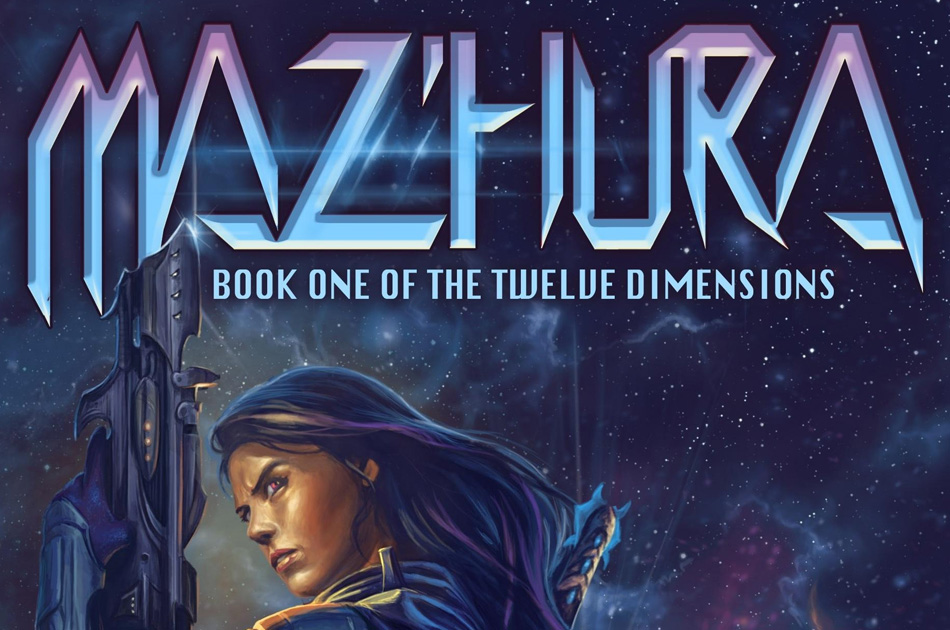
I wrote an editorial review for Maz’hura. I though it was really good. Here’s my review:
Celebrations aboard the interstellar spaceship Celestial are cut short when a newborn star, whose awe-inspiring birth Captain Shirakaya and her crew have just witnessed, is suddenly devoured by monstrous aliens long believed extinct. This act of celestial carnage is bad enough, but things take a turn for the worse when the aliens (scaly, dragon-like creatures who spit gamma fire and soar through the vacuum of space) set their sights on the ship. Worse still, without the newborn star to replenish her reserves of magical energy, main character Shirakaya’s ability to cast spells begins to fail almost immediately and she struggles to defend her crew.
Worst of all is the draconian, religious government that employs Shirakaya; because religious texts state these terrifying aliens will only return as a herald of the end times, Shirakaya’s subsequent report is tantamount to some strange cocktail of treason and blasphemy, putting her life and career in jeopardy even after the grisly scene aboard the Celestial has played out. And this is just the first chapter.
Maz’hura: Book One of the Twelve Dimensions is a swashbuckling, run-and-gun space opera with action so explosive it practically lights up the page. The decision to strip Shirakaya of most of her powers at the start of the book is a bold decision and one that requires her to think on her feet in intense situations. Along for the ride are a score of colorful characters, including the loyal, overly formal Yarasuro and the foul-mouthed renegade Dojin. I was especially impressed by the variety of locations—the book moves, jettisoning the characters from spaceship to spaceship, to archaeological dig sites, crowded bars, and everywhere in between with hardly a minute’s rest.
Although the story is straightforward and easy to follow, the fantasy-infused technospeak may create the illusion of a high barrier to entry for some readers. Otherwise simple passages are made arcane and unwieldy by a slew up made-up words (necessitating a twenty-three-page glossary), including words bisected by apostrophes for, it seems, the sake of words bisected by apostrophes. Mileage will vary depending on the reader, but I was sometimes frustrated by the interruptions to explain terms like “zitrogen” and “tetrigonium” when “air” and “metal” would have done just fine. Still, author Paul L. Centeno’s workmanlike prose is pleasant, and the bite-sized adventures within the novel make it easy to keep going.
Sci-fi fans partial to Golden Age trappings will find in Maz’hura an entertaining, decidedly R-rated adventure spanning innumerable stars.
